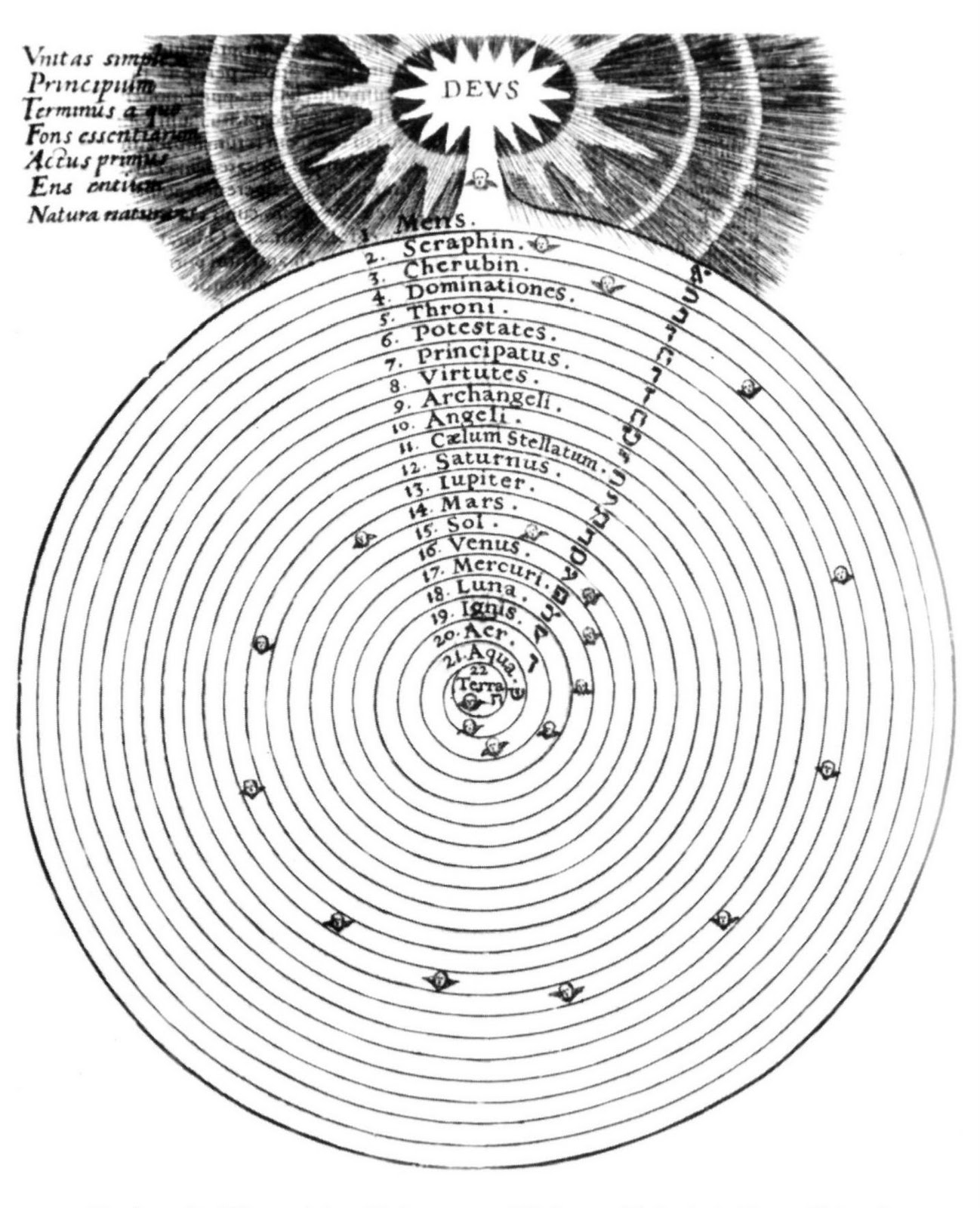
The Hermetic Tradition envisions a hierarchical organization of the cosmos. The presence of man portends a split in the continuum: for man, there is an outer world of sense experience and an inner world of thought. However, in consciousness, there is no difference. Thought, in Hermetism, is understood as another sense, along with sight, hearing, taste, smell, and touch. We recognize objects in the world by experience of the juxtaposition of colour, shape, texture, sound, smell and so on, that signify the object. Similarly, we recognize beings on the inner plane by the repetition of certain thought patterns. As Tomberg describes how this realization came to Plato:
Plato, the father of metaphysical philosophy, had the experience of trans-cerebral thought, of thought not conceived but seen. That is why he could teach the method of the gradual elevation above cerebral intellectuality, the elevation from possible opinion (doxa), to a probable conclusion (dianoia) due to dialectical argument, and finally to the certitude of immediate perception (episteme).
Plato seems to have made the error of giving reality to the ideas as independent beings. Tomberg goes on:
The entire world is populated only by individual beings, and Ideas live and exist only in them, by them, and in the relationships they establish between them. The ideas are certainly real, but as immanent reality, not as a reality on their own. Ideas live only in consciousness, whether that of God, of the angelic hierarchies, or of man.
Yet, just as a colour or sound exists only in consciousness, they reveal an objective reality. Similarly, for thoughts (or ideas), which also are experiences of an objective reality. Tomberg explains:
But they can also be projected outside, incarnated in symbols and formulas, thus conserved in the objective spiritual world.
So the man with clairvoyance or spiritual vision will experience a thought but “see” a gnome or an archangel, that is, the object the thought corresponds to, expressed in the language of a symbol or myth.
In the diagram, formulated by Robert Fludd from his treatise Utiusque cosmi, maioris scilicet et minora, metaphysica, physica atque technica historis, we see the entire cosmic hierarchy, These may be arranged in three Kingdoms:
| Kingdom | Hierarchy | Influence | Occultism |
|---|---|---|---|
| Nature | Sublunary | A | Mechanical |
| Man | Planetary | B | Hygienic |
| Heaven | Angelic | C | Eugenic |
The A influences arise from the elementals, below the lunar sphere, that operate on the lower part of man as described in Possession by Evil Spirits . Next come the planetary, or B, influences which operate in the human realm; these are personified or objective in the religions of the ancient Greeks, Romans and Nordics. Above them are the C (and higher) influences of the celestial hierarchy which was revealed by St. Dionysus the Areopagite. The Hermetic art is to learn how do recognize and respond to such influences:
- To dominate and control the lower elements
- To work with the planetary influences
- To be silent and listen to the revelations of the celestial hierarchies


alchemy, astrology;[ anphropology ],the sciece of culture through the eye of gnosis .the tarot is the way of prayer used through meditation to understand sybolical intelect ,metaphorical movement,the classes of instinct in natural order,physical awareness as poise posture.
Objectivity and intuition do not prove that ideas are independent beings, but are as possibilities. Ideas are not conscious.
Tomberg comfirms this when he says “The ideas are certainly real, but as immanent reality, not as a reality on their own. Ideas live only in consciousness, whether that of God, of the angelic hierarchies, or of man.”
An excellent presentation, short and sweet. This is something I think the Jungians miss. There really ARE existences that are orders of magnitude more profound than humanity’s grasp. Not everything out there can be reduced to an “archetype of the collective unconscious”. It seems that people don’t get around to thinking about these kinds of things until they are ill, about to die, or hit hard by the fist of karma.
Yet, for the philosophical types, these are the most interesting topics of all. Go figure!